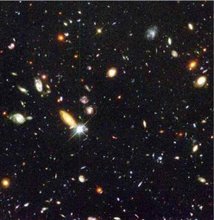Amado mio ¿podrías decirme otra vez
Que seamos dos personas que
Van a enamorarse?
Deseo oír la historia antes del
Viento frío entre por la
Ventana y apaga nuestra vela.
Quiero escucharla como si
Yo fuera una semillita que no sabe
Los tormentos o las estaciones.
My love, could you tell me again
That we are two people
Who are going to fall in love?
I wish to hear the story before the
Cold wind comes in through the
Window and blows out our candle.
I want to listen as if I were
A tiny seed that does not know about
Storms or seasons.
Saturday, December 29, 2007
Thursday, December 20, 2007
pretty porcupine
Chris said I was pretty like a bowl of granola,
and I never quite knew what that meant.
David said I looked pretty with make-up on,
but don’t think it was a compliment.
André called me mon petit chou,
which, I think, is French for “my little cabbage.”
And I thought that Kevin thought I was beautiful,
but one night he told me that I was just average.
Brian said I was pretty even with a mop on my head.
The mop, however, was my new hair cut.
Justin told me I was absolutely gorgeous,
but he was a notorious, conniving male slut.
Juan Carlos told me I had beautiful blue monkey eggs,
so I said maybe we should just speak Spanish instead.
Paul said I had unusually small nostrils,
but who really cares what Paul said?
Kyle told me I was the prettiest older woman
he had ever seen in his young life.
But Jason said I was his smallest porcupine,
and now I am his wife.
and I never quite knew what that meant.
David said I looked pretty with make-up on,
but don’t think it was a compliment.
André called me mon petit chou,
which, I think, is French for “my little cabbage.”
And I thought that Kevin thought I was beautiful,
but one night he told me that I was just average.
Brian said I was pretty even with a mop on my head.
The mop, however, was my new hair cut.
Justin told me I was absolutely gorgeous,
but he was a notorious, conniving male slut.
Juan Carlos told me I had beautiful blue monkey eggs,
so I said maybe we should just speak Spanish instead.
Paul said I had unusually small nostrils,
but who really cares what Paul said?
Kyle told me I was the prettiest older woman
he had ever seen in his young life.
But Jason said I was his smallest porcupine,
and now I am his wife.
Wednesday, December 19, 2007
Tuesday, December 18, 2007
in the beginning: a study in grammatical time
Part One: The Long Version
This is the story about the beginning of the stars, except there really was no beginning so to speak, at least not in the way that we say beginning, because that would imply that time existed before time existed, which it could have, semantically speaking—I mean, we could ask, “What was there before time began?” but this logical lexography just can’t hold up to empirical evidence, which is to say, it was more like a non-beginning with a lot of stuff going on all at once, but the stuff wasn’t there before in the same way that it was there after the big non-beginning of the beginning of the stars and then stars were born, and from star dust, on a molecular level, your hands, my eyes, this page, these words.
Part Two: The Short Version
This is the story about the beginning of the stars. There really was no beginning, so to speak. At least not in the way we say beginning. That would imply that time existed before time existed. It could have existed, semantically speaking. We can ask, “What was there before time began?” But this logical lexography leads nowhere. It just can’t hold up to empirical evidence. In other words, it was more like a non-beginning. But there was a lot of stuff going on. And everything was happening at one time. But the stuff before was different from the stuff after. After the big non-beginning of the beginning, stars were born. And from star dust came hands, eyes, words, this page.
This is the story about the beginning of the stars, except there really was no beginning so to speak, at least not in the way that we say beginning, because that would imply that time existed before time existed, which it could have, semantically speaking—I mean, we could ask, “What was there before time began?” but this logical lexography just can’t hold up to empirical evidence, which is to say, it was more like a non-beginning with a lot of stuff going on all at once, but the stuff wasn’t there before in the same way that it was there after the big non-beginning of the beginning of the stars and then stars were born, and from star dust, on a molecular level, your hands, my eyes, this page, these words.
Part Two: The Short Version
This is the story about the beginning of the stars. There really was no beginning, so to speak. At least not in the way we say beginning. That would imply that time existed before time existed. It could have existed, semantically speaking. We can ask, “What was there before time began?” But this logical lexography leads nowhere. It just can’t hold up to empirical evidence. In other words, it was more like a non-beginning. But there was a lot of stuff going on. And everything was happening at one time. But the stuff before was different from the stuff after. After the big non-beginning of the beginning, stars were born. And from star dust came hands, eyes, words, this page.
Subscribe to:
Comments (Atom)


